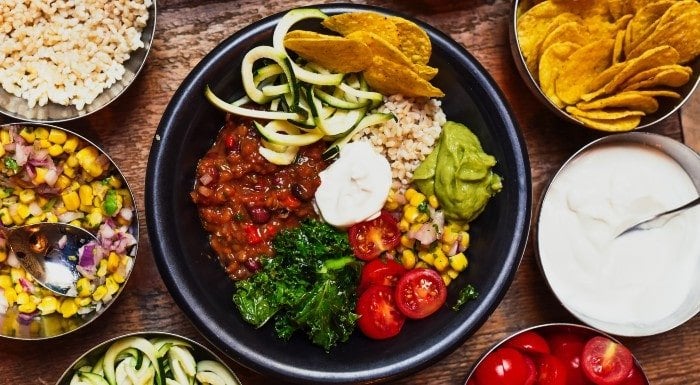Rise by Six: Your Daily Dose of Inspiration
Explore insights and stories that elevate your day.
Beefing Up Your Bulking Game
Unlock the secrets to effective bulking! Discover top tips, delicious recipes, and workout strategies to maximize your gains today!
Top 10 Nutrient-Dense Foods for Effective Bulking
When it comes to effective bulking, incorporating nutrient-dense foods into your diet is essential. These foods not only provide the necessary calories to promote weight gain but also offer vital vitamins and minerals to support overall health. Here are the top 10 nutrient-dense foods you should consider:
- Salmon: Packed with Omega-3 fatty acids and protein.
- Quinoa: A complete protein source rich in fiber.
- Sweet Potatoes: Loaded with vitamins and carbohydrates for energy.
- Kale: A superfood packed with nutrients and antioxidants.
- Almonds: High in healthy fats and protein.
- Greek Yogurt: Offers probiotics and double the protein of regular yogurt.
- Eggs: A complete protein source, also rich in healthy fats.
- Chicken Breast: A lean meat high in protein.
- Chickpeas: A great plant-based protein source with fiber.
- Oats: Rich in complex carbohydrates that provide long-lasting energy.

The Science Behind Muscle Gain: How to Optimize Your Bulking Phase
Understanding muscle gain requires a deep dive into the science of how our bodies respond to resistance training and nutrition. During the bulking phase, your primary goal is to create a calorie surplus, meaning you consume more calories than your body burns. This surplus provides the energy needed for muscle repair and growth. Incorporating a cycle of progressive overload in your training routine—where you gradually increase weights or resistance—will stimulate muscle fibers more effectively. Additionally, prioritize high-quality proteins in your diet, aiming for about 1.6 to 2.2 grams of protein per kilogram of body weight to support muscle protein synthesis.
To further optimize your bulking phase, focusing on meal timing and macronutrient distribution is vital. Aim to consume balanced meals that include carbohydrates, proteins, and a healthy fat source within a few hours post-workout. This period is critical, as the body is primed to absorb nutrients and start repairing muscle damage. Consider using a meal plan that includes whole foods and minimizes processed items, keeping your intake clean while maximizing caloric density. By understanding these principles and applying them consistently, you can effectively enhance your muscle gain during the bulking phase.
Common Mistakes to Avoid When Starting Your Bulking Journey
Starting a bulking journey can be an exciting yet challenging undertaking. One of the most common mistakes is dramatically increasing caloric intake without proper planning. Many individuals assume that consuming as much food as possible will lead to quicker gains, but this can result in excessive fat gain rather than muscle growth. Balanced nutrition is key; focus on a slight caloric surplus with a well-rounded macronutrient distribution. Prioritize protein-rich foods, healthy fats, and complex carbohydrates to fuel your workouts effectively.
Another pitfall to avoid is neglecting the importance of consistent training. It's not just about what you eat; your workout routine is equally crucial. Ensure that you incorporate progressive overload into your regimen, which means gradually increasing weights or intensifying your workouts over time. Skipping workouts or failing to track your progress can hinder gains and lead to frustration. Stick to a structured program and be patient, as building muscle takes time and persistence.